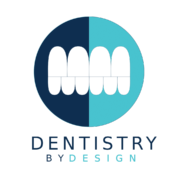Have you ever thought about how often you move your jaw? If you think about it we are constantly using our jawbone for speaking, yawning, eating, etc. The temporomandibular joint (or TMJ) connects at the base of the skull and jawbone. TMJ allows for all the movement needed for chewing and talking. Since TMJ is the only joint that moves in three ways: up and down, forward and back, side to side, it is considered one of the most complex joints in the body.
“TMJ” is also often used to define TMJ disorder, which is the malfunctioning in and around the joints and muscles that move the jaw. It is estimated that over 10 million people in the United States suffer from TMJ disorder.
Causes
The exact cause of a person’s TMJ disorder is often difficult to determine. There are many causes, such as infections, dental surgery, arthritis or grinding teeth during sleep. Other causes include the environment, genetics, and hormonal factors. Experts observe that women experience TMJ more commonly than males.
Symptoms
The good news is that if you have TMJ, the symptoms are mild, and only causes a minor inconvenience. One of the most common symptoms of TMJ is pain while moving the jaw. Some other symptoms include headaches, unusual popping, grinding, or clicking when talking, chewing or just opening the mouth. The restricted jaw movement makes it painful to open the mouth too wide and sometimes makes it difficult to eat.
Treatment
Even though there is no single cure for TMJ disorders, there is a wide variety of treatments offered to reduce the severity of your symptoms. Self-care and changes in your lifestyle may be enough for mild cases. Other treatments include medication, mouth guards, and relaxation techniques. For more severe cases, jaw surgery may be the best way to tackle TMJ.
It is often challenging to determine TMJ since most of these symptoms appear with many different health issues. If you’re experiencing jaw pain, your dentist can help make a proper diagnosis. Contact our office to schedule an appointment, 405-267-8362.

